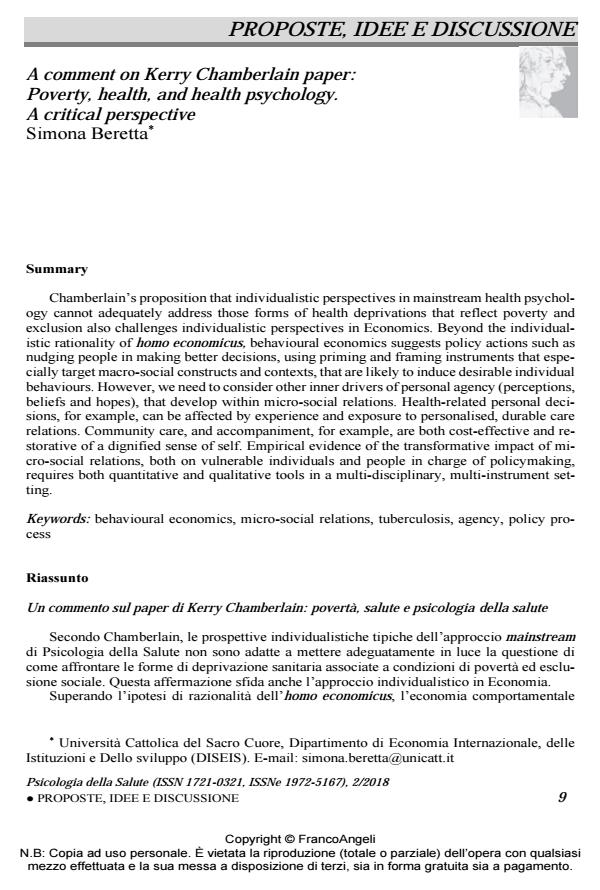A comment on Kerry Chamberlain paper: Poverty, health, and health psychology. A critical perspective
Journal title PSICOLOGIA DELLA SALUTE
Author/s Simona Beretta
Publishing Year 2018 Issue 2018/2
Language English Pages 8 P. 9-16 File size 175 KB
DOI 10.3280/PDS2018-002003
DOI is like a bar code for intellectual property: to have more infomation
click here
Below, you can see the article first page
If you want to buy this article in PDF format, you can do it, following the instructions to buy download credits

FrancoAngeli is member of Publishers International Linking Association, Inc (PILA), a not-for-profit association which run the CrossRef service enabling links to and from online scholarly content.
Chamberlain’s proposition that individualistic perspectives in mainstream health psychology cannot adequately address those forms of health deprivations that reflect poverty and exclusion also challenges individualistic perspectives in Economics. Beyond the individualistic rationality of homo economicus, behavioural economics suggests policy actions such as nudging people in making better decisions, using priming and framing instruments that especially target macro-social constructs and contexts, that are likely to induce desirable individual behaviours. However, we need to consider other inner drivers of personal agency (perceptions, beliefs and hopes), that develop within micro-social relations. Health-related personal decisions, for example, can be affected by experience and exposure to personalised, durable care relations. Community care, and accompaniment, for example, are both cost-effective and restorative of a dignified sense of self. Empirical evidence of the transformative impact of micro- social relations, both on vulnerable individuals and people in charge of policymaking, requires both quantitative and qualitative tools in a multi-disciplinary, multi-instrument setting.
Keywords: Behavioural economics, micro-social relations, tuberculosis, agency, policy process
Simona Beretta, A comment on Kerry Chamberlain paper: Poverty, health, and health psychology. A critical perspective in "PSICOLOGIA DELLA SALUTE" 2/2018, pp 9-16, DOI: 10.3280/PDS2018-002003